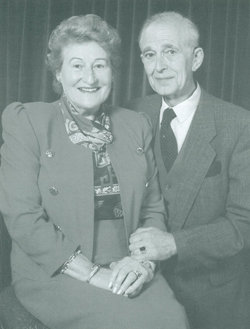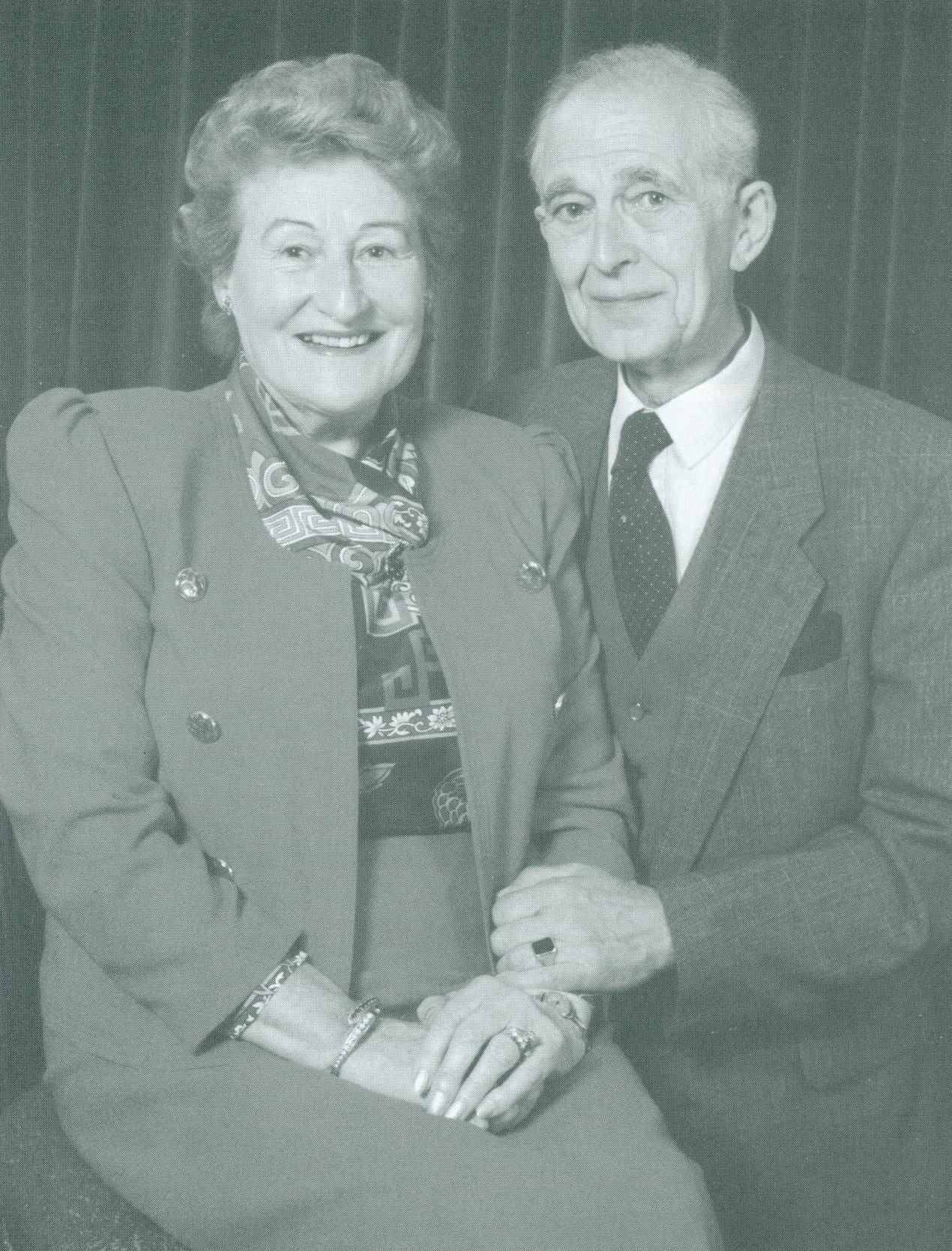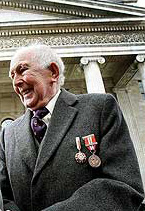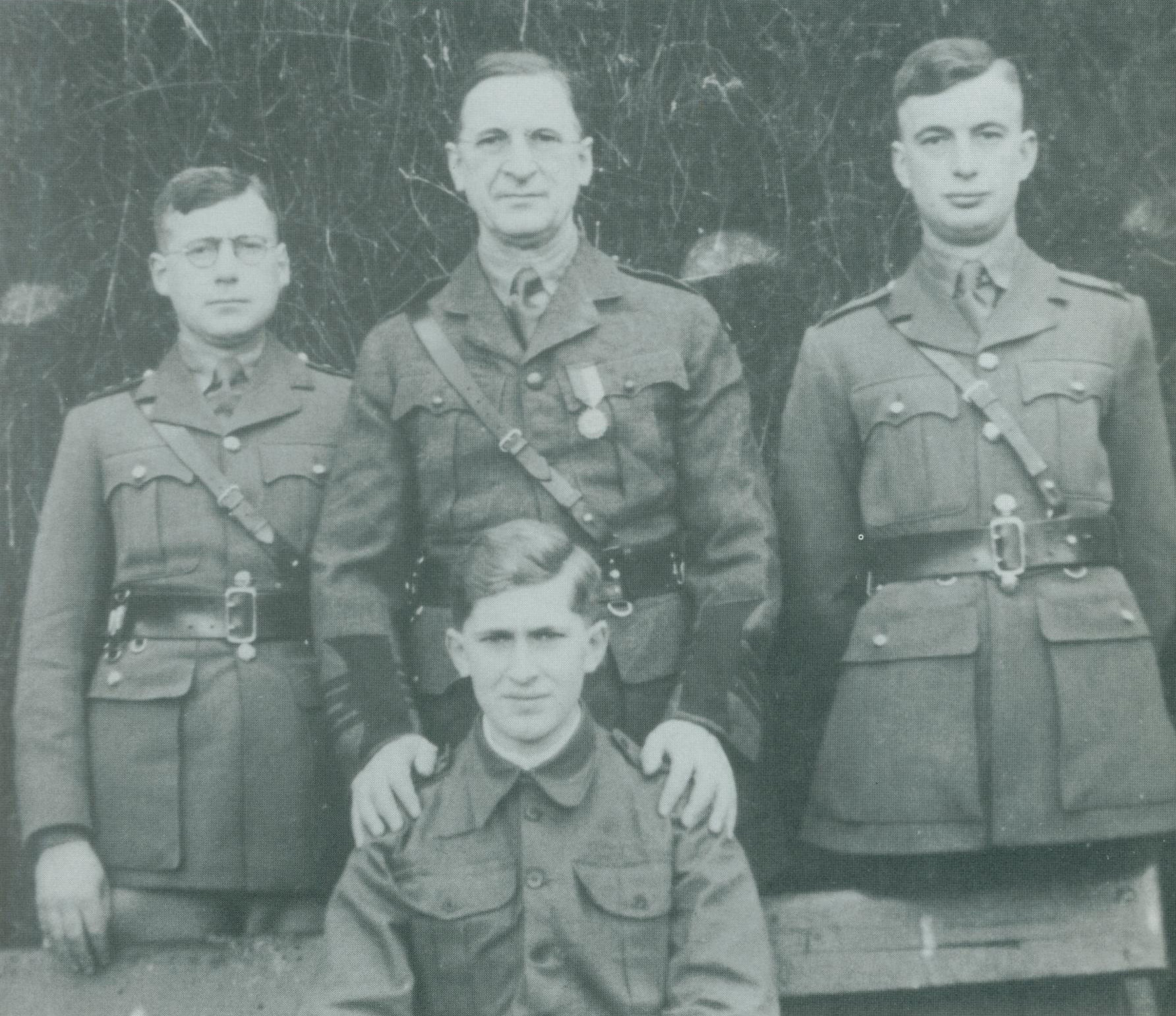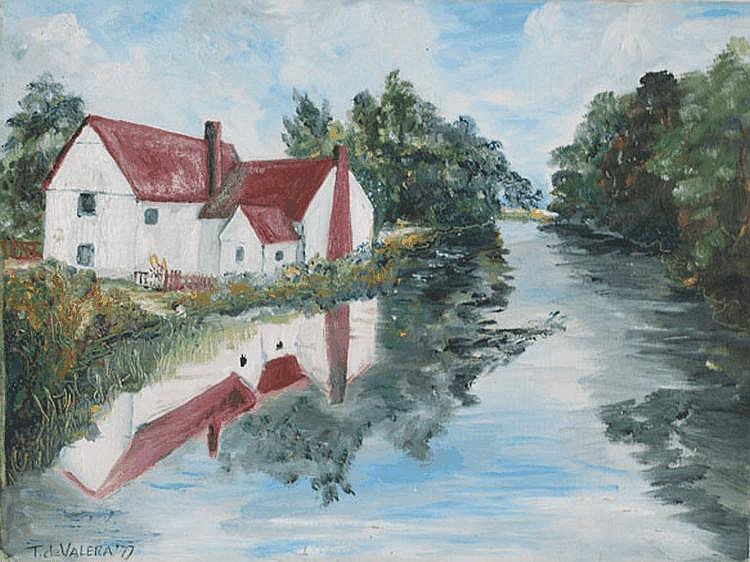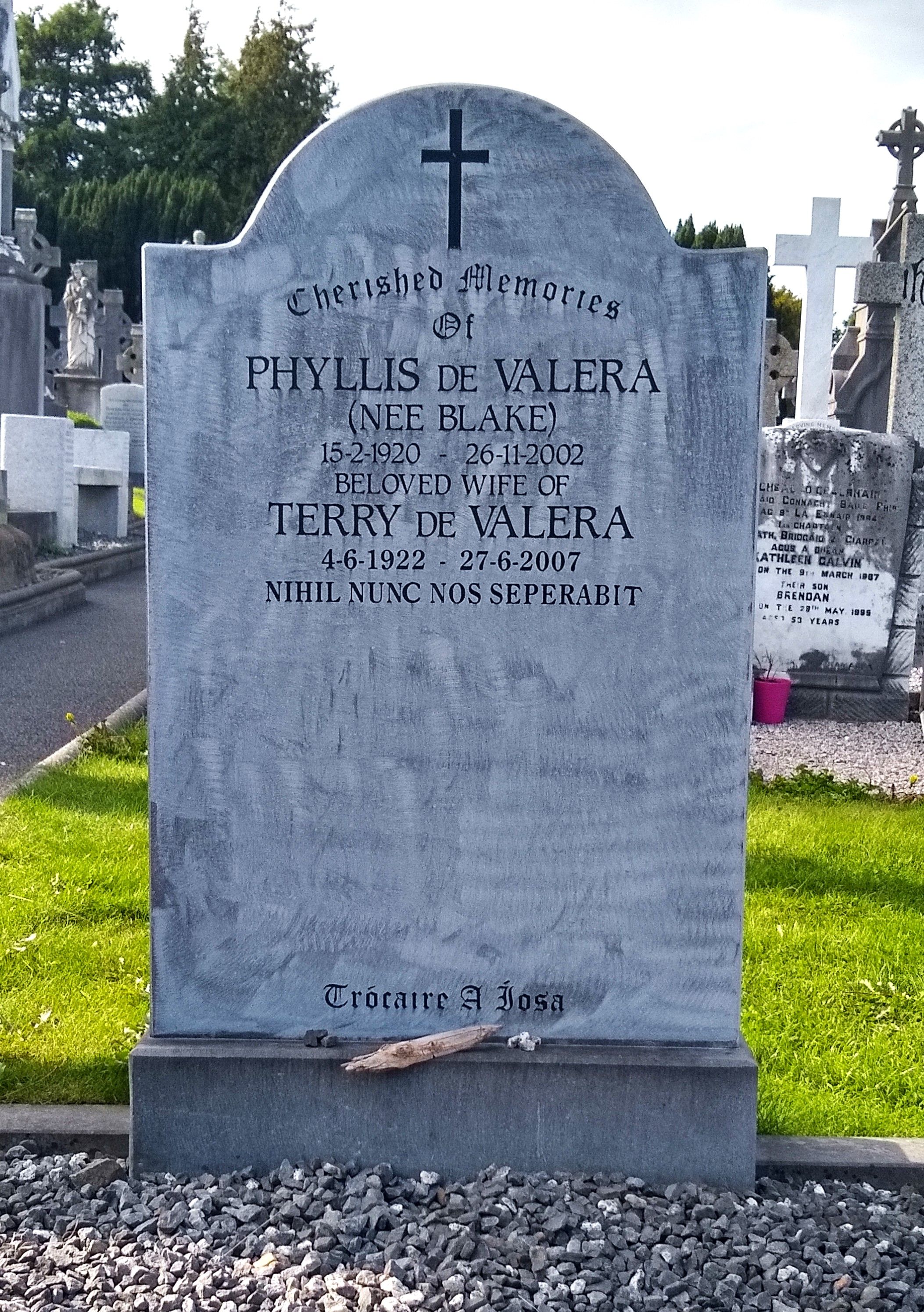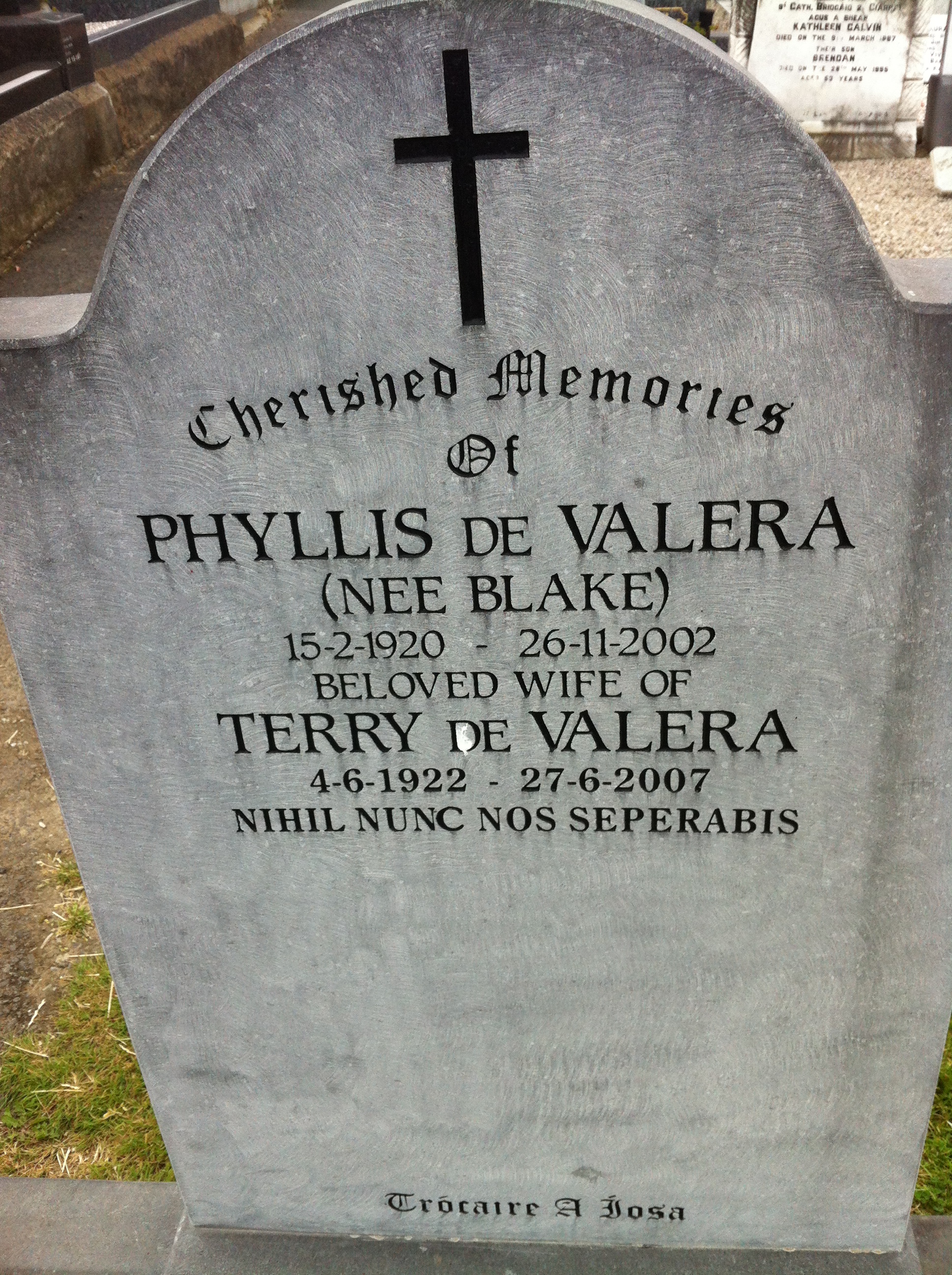Toírleach, called Terry, was the youngest of 7 children of Sinéad (née Ni Fhlannagáin) & Éamon de Valera. He was born in Co. Wicklow at the outset of the tragic Civil War, as his mother had taken the family there for safety. Afterwards, the de Valera's returned to Dublin where he was raised, but he retained his link to Wicklow, spending summers in Delgany.
He was named after Terence MacSwiney (Toírleach Mac Shuibhne), the Irish nationalist & martyr who died on hunger strike in 1920 while a Prisoner of War, interred under brutal conditions in the enemy's homeland.
His earlier education was by the Holy Ghost Fathers at Blackrock College in Dublin. Like his brother Vivion, he became a lawyer, qualifying as a solicitor in 1945. He had a thriving legal practice in Dublin until 1969, at which time he was appointed Taxing Master of the Supreme and High Courts, charged with being the arbiter of legal fees in cases of dispute. Later that year he became Senior Master.
In 1951 he married Phyllis Blake of Foxrock in Dublin. They had 2 children, both daughters; Síle, born in 1954 and Sinéad (Jane) in 1959, who was named after her grandmother, Irish Nationalist and author Sinéad Ni Fhlannagáin de Valera.
While he was active in many campaigns for Fianna Fáil, and was immensely proud of Síle's election as the youngest Teachta Dála in the history of Poblacht na hÉireann. Terry had no interest in becoming a politician, his interests lay elsewhere. He was a talented painter, sculptor & historian who for years contributed historical essays for the periodicals of the Old Dublin Society. But his great love was music.
He was an accomplished violinist and pianist who was awarded first-class honours for his talent by the Royal Irish Academy of Music. He went on to become a Fellow, RIAM. Terry de Valera was an internationally recognized authority on Chopin, for which he was invited to Poland where he was awarded honours by the Polish Government. He was a champion and promoter of the late 18th, early 19th century Irish composer and musical innovator John Field, whom he regarded as one of the greatest of the classical composers.
Terry de Valera retired as Senior Master in 1992 and devoted himself to these other interests full time. His wife Phyllis de Valera passed away in 2002 as he was completing his autobiography, titled A Memoir. In it, he wrote frankly and intimately not only of the de Valera genealogy, but of his childhood as the son of two of Ireland's most significant citizens.
At the time of his passing at St. Vincent's Hospital he had 1 grandchild, on whom he doted. In his will, he bequeathed funds for scholarships to the Royal Irish Academy of Music.
✞ Toírleach de Valera is buried at Glasnevin Cemetery. Buried with him is Phyllis, his wife of 51 years.
Toírleach, called Terry, was the youngest of 7 children of Sinéad (née Ni Fhlannagáin) & Éamon de Valera. He was born in Co. Wicklow at the outset of the tragic Civil War, as his mother had taken the family there for safety. Afterwards, the de Valera's returned to Dublin where he was raised, but he retained his link to Wicklow, spending summers in Delgany.
He was named after Terence MacSwiney (Toírleach Mac Shuibhne), the Irish nationalist & martyr who died on hunger strike in 1920 while a Prisoner of War, interred under brutal conditions in the enemy's homeland.
His earlier education was by the Holy Ghost Fathers at Blackrock College in Dublin. Like his brother Vivion, he became a lawyer, qualifying as a solicitor in 1945. He had a thriving legal practice in Dublin until 1969, at which time he was appointed Taxing Master of the Supreme and High Courts, charged with being the arbiter of legal fees in cases of dispute. Later that year he became Senior Master.
In 1951 he married Phyllis Blake of Foxrock in Dublin. They had 2 children, both daughters; Síle, born in 1954 and Sinéad (Jane) in 1959, who was named after her grandmother, Irish Nationalist and author Sinéad Ni Fhlannagáin de Valera.
While he was active in many campaigns for Fianna Fáil, and was immensely proud of Síle's election as the youngest Teachta Dála in the history of Poblacht na hÉireann. Terry had no interest in becoming a politician, his interests lay elsewhere. He was a talented painter, sculptor & historian who for years contributed historical essays for the periodicals of the Old Dublin Society. But his great love was music.
He was an accomplished violinist and pianist who was awarded first-class honours for his talent by the Royal Irish Academy of Music. He went on to become a Fellow, RIAM. Terry de Valera was an internationally recognized authority on Chopin, for which he was invited to Poland where he was awarded honours by the Polish Government. He was a champion and promoter of the late 18th, early 19th century Irish composer and musical innovator John Field, whom he regarded as one of the greatest of the classical composers.
Terry de Valera retired as Senior Master in 1992 and devoted himself to these other interests full time. His wife Phyllis de Valera passed away in 2002 as he was completing his autobiography, titled A Memoir. In it, he wrote frankly and intimately not only of the de Valera genealogy, but of his childhood as the son of two of Ireland's most significant citizens.
At the time of his passing at St. Vincent's Hospital he had 1 grandchild, on whom he doted. In his will, he bequeathed funds for scholarships to the Royal Irish Academy of Music.
✞ Toírleach de Valera is buried at Glasnevin Cemetery. Buried with him is Phyllis, his wife of 51 years.
Family Members
Sponsored by Ancestry
Advertisement
Records on Ancestry
Sponsored by Ancestry
Advertisement
